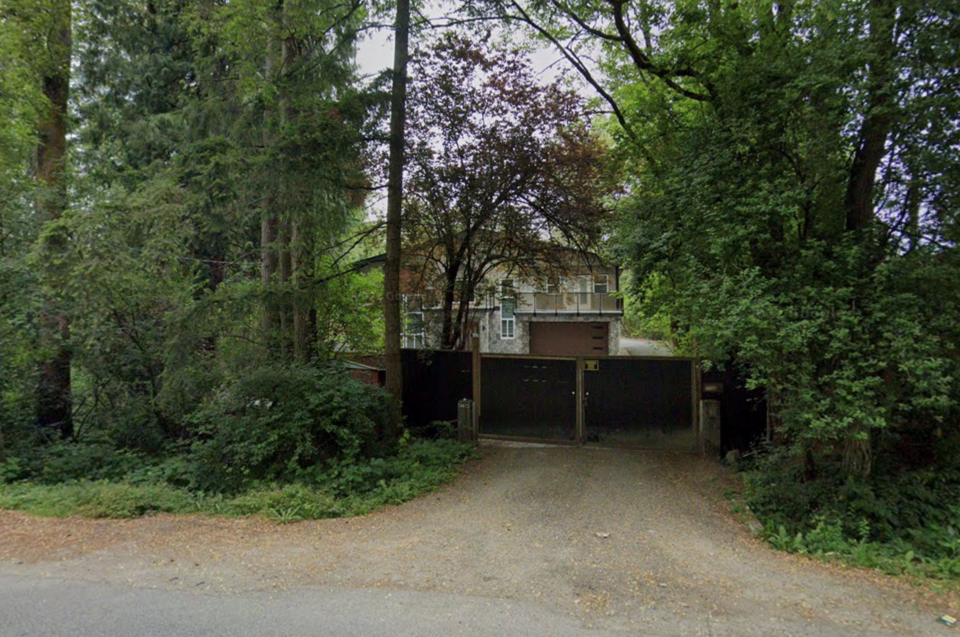A Surrey man who repeatedly violated numerous municipal bylaws, including those intended to protect a salmon-bearing stream, has been ordered to conduct extensive remediation work.
In his June 24 ruling, B.C. Supreme Court Judge Geoffrey Gomery described that Amrik Singh has acted in an “atrocious” manner since purchasing his home at 14485 82A Ave. next to Enver Creek in July 2021.
Gomery found Singh undertook extensive landscaping and renovations to the $1.3 million-assessed home and shed, including clear-cutting much of the property, without permits from the City of Surrey.
“He has cut down trees, paved and poured a concrete pad on part of the property, erected fences, deposited fill, and moved earth. He has enlarged the buildings, converting the shed into a living unit. Inside both buildings the work has included drywalling, electrical work and plumbing. He has deposited materials on the banks of Enver Creek, some of which has fallen into the creek,” Gomery summarized.
Singh was issued stop鈥憌ork orders and an interim injunction to vacate his home on Sept. 22, 2021. However, he disregarded those orders and re-occupied the home without an occupancy permit, which led to his arrest for breach of the injunction.
“He deliberately chose not to comply with his obligations, probably in the hope that he could get away with non鈥慶ompliance by presenting the City with a fait accompli or possibly because he simply could not conceive that his actions would have consequences,” stated Gomery.
It was found by the judge Singh violated six municipal bylaws, many of them repeatedly. The evidence documents 20 attendances by city officials at the property between Aug. 4, 2021, and April 29, 2022, stated Gomery.
As an example of Singh’s “flagrant” behaviour, is the instance he poured concrete on Nov. 17, 2021, mere hours after being told not to by a city official.
“Mr. MacLeod arrived and saw that fresh concrete had been poured since his attendance that morning. Mr. Singh was arrested for breach of the court order. It emerged that Mr. Singh's wife and child were in the house, and they were escorted from the property. It was plain that they had been living there. There was food in the refrigerator and bed linens on the beds,” stated the ruling.
Despite taking an undertaking, Singh re-occupied the home by March, according to inspectors.
Singh’s lawyer Roger Mpania admitted Singh violated bylaws, but described him as “unsophisticated and suggests that he was confused about the city's requirements,” stated Gomery, who did not buy the excuses.
“Mr. Singh's breaches of the bylaws have continued over many months, and they have been deliberate,” stated Gomery.
“Quite apart from the interim injunction, the present occupation of the property by Mr. Singh and his family is illegal. In light of the injunction, it is a flagrant continuing contempt of court. Mr. Singh does not have an occupancy permit, and he is not on the verge of obtaining an occupancy permit. He should be enjoined from occupying the property until the city issues an occupancy permit,” stated Gomery.
Additionally, although Singh had been fined $102,181 in connection with the removal and damage of protected trees, he had not offered to address the removal of and damage to protected trees.
Gomery has now made the injunction permanent and given Singh 90 days to demolish all the structures constructed on the property without permits. Gomery also ordered removal of un-permitted fill from the property as well as the planting of 16 replacement trees.
Gomery took time to note the punishment could have been more severe, as the city did not seek costs against Singh; “Had it requested special costs, I would have awarded them,” stated Gomery.
The judge finalized his decision with a message to Singh: “I want to say one more thing. I expect that Mr. Singh is present. Mr. Singh, you must leave the house. You must leave the house. You have been ordered not to occupy it. It is a contempt of court to be there. The city could have taken a much more aggressive position with you. Had it asked me for an order finding you in contempt of court, I would have had no choice but to find you in contempt, and the consequences would have been very serious.”





